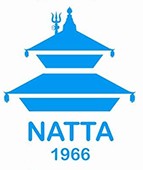Nepal Sanctuary Treks is dedicated to partnering with accommodations in Nepal that prioritize sustainability. We take pride in curating a selection of handpicked lodgings that adhere to eco-friendly principles.
Kathmandu Guest House
Since 1967, the Kathmandu Guest House, a transformed mansion from the Rana dynasty, has been the preferred serene sanctuary. With fragrant gardens and spacious corridors, it offers a tranquil escape. Kathmandu Guest House, a well-known hotel in Nepal, has taken steps towards sustainability. Incorporating regular cleanup activities and implementing an environmentally friendly disposal method for plastic waste further highlights the Kathmandu Guest House’s commitment to sustainability. Particularly, they use environment-friendly disposal of plastic in smokeless incinerators. Learn more about their sustainability
Hotel Ambassador
- Hotel practices source separation of waste and collaborate with Khalisisi.
- Recycling bins available for guests in common areas
- Energy-efficient light,
- Use refillable water bottles in halls during the events.
- Educate guests about the environmental impact of single-use plastic bottles.
- support social or environmental causes through its CSR program,
- offer cycling activities to guests,
- Employ local staff,
- Prioritize purchasing local ingredients whenever possible.
- Feature regional or local cuisine on their menu, actively support local artisans or businesses by purchasing locally made products
- Using mild cleaning products and chemicals,
- Offer paperless options for guest communication, provide thorough training on safety and emergency procedures,
- Replaced one-time useable plastic slippers with reusable slippers.
Hotel Shambala
Hotel Shambala’s attainment of Travelife Gold Certification signifies their dedication to sustainability. They have implemented various measures like low-flow fixtures, energy-efficient lighting, and solar power to minimize water and energy consumption. Additionally, they repurpose water for irrigation and provide EV charging stations, showcasing a holistic commitment to environmental responsibility while ensuring guest comfort.
Please check their sustainability policy
Peacock Guest House, Bhaktapur
Peacock Guest House stands as a boutique hotel situated in the heart of Dattatreya Square, Bhaktapur, an esteemed UNESCO World Heritage Site. Providing contemporary conveniences coupled with authentic Nepali warmth, the hotel presents a window into history, showcasing its exquisite Newar architectural style that traces its origins back to the 14th century.
Sustainability: Utilization of solar panels, timer switches, energy efficiency bulbs, housekeeping by requests to reduce water usage, Paul water purification system, local and seasonal ingredient sourcing within the locality
Eco-friendly practices: Reuse towels, waste recycling, composting of raw kitchen waste, and reduce usage of plastic, and styrofoam.
The guesthouse has a special open area where visitors can watch skilled artisans create famous centuries-old Newar woodwork, known for its intricate craftsmanship.
Barahi Jungle Lodge
Barahi Jungle Lodge has achieved the ISO 14001:2015 certification, underscoring their commitment to effective environmental management systems. The ISO 14001:2015 standard is globally acknowledged, showcasing an organization’s unwavering focus on handling its environmental influence. At Barahi Jungle Lodge, they understand the importance of preserving our natural resources and minimizing our ecological footprint. They have implemented a range of initiatives to reduce our environmental impact. They believe that by adopting sustainable practices, they can help protect the natural beauty of our surroundings and provide a more meaningful and authentic travel experience for their guests. Please find the Sustainability Certificate.
The Old Inn, Bandipur
The Old Inn Bandipur is a charming and historic guesthouse located in the town of Bandipur, Nepal. It is known for its traditional architecture, vintage atmosphere, and picturesque surroundings. The guesthouse provides travelers with a glimpse into the past while offering comfortable accommodations and a taste of local culture.
Sustainability
- Implemented water reuse or recycling systems
- Use energy-efficient lighting throughout
- Provide employment and support to local school
- incorporate local elements in various aspects of the hotel
- As a part of CSR, they support Schools and underprivileged
- Offer activities to guests like nature walk
- Prioritize purchasing local ingredients whenever possible
- Actively support local artisans or businesses by purchasing locally-made products
The Pavilion Himalayas The Farm, Pokhara
The Pavilion Himalayas, also called The Farm, is a luxury resort in Pokhara, Nepal. It offers a unique blend of comfort and nature. Nestled in the Himalayas, it’s a tranquil place to unwind while enjoying the stunning surroundings. What sets it apart is its commitment to sustainability and community well-being.
Sustainability
- The resort holds the Green Pearls International Sustainability certification
- Produce their own biogas from the organic waste.
- Do not use plastic products on their property.
- Clear glass water bottles are provided in the rooms.
- The hotel disposes of its own waste.
- hotel owns its own organic farm where they promote organic farming providing employment to the locals as well as educating local farmers to increase productivity by organic practices.
- Provide employment opportunities at the resort and operate our own non-profit organization called Right4children. They provide opportunities to underprivileged children with voluntary training and provide recruitment services.
- Organise village visits, cooking classes, and cycling for guests
- Produce own organic food served at the restaurant to the guests.
- The swimming pool is cleaned using Himalayan pink salt and alum and does not use chlorine.
- They have rainwater harvesting, solar energy, biogas production, greywater treatment
Please check their sustainability.
Tiger Mountain Pokhara Lodge
Perched on a ridge outside Pokhara, along the original route of the Royal Trek used by HRH the Prince of Wales in 1980, this lodge was established in 1998 by Sir Edmund Hillary. An idyllic retreat for relaxation in the tranquil mountainous setting, it’s a haven away from Nepal’s urban hustle. The lodge comprises a central building with a bar and dining space, while comfortable guest rooms are grouped like a Nepali village, each featuring a private bathroom, veranda, and stunning Himalayan vistas.
Diners are treated to daily fixed menus showcasing Nepali dishes and continental specialties, all crafted from fresh local produce, home-grown herbs, and garden salads. Visitors can explore the lush surroundings through bird walks and guided day hikes, led by expert local guides. The lodge achieved Travelife Gold Standard.
Please check their sustainability
Dwarika’s Hotel
Nestled in Kathmandu, The Dwarika’s Hotel provides an authentic immersion into Nepal’s timeless cultural legacy. Rooted in a deep tradition of Nepalese hospitality, the hotel seamlessly integrates the nation’s splendid architectural practices. This fusion of Nepal’s heritage and enduring hospitality tradition transforms The Dwarika’s Hotel into an intimate portrayal of an elevated Nepali way of life.
• Operate a primary school in Chitwan district, which offers quality education for around 300 children of low-income families, as well as providing educational scholarships
• Use of solar energy, completely natural cleaning products,
• Grey-water treatment and water harvesting technology.
• Use of local materials and local knowledge is central in each area of Dwarika’s ventures, through which we are able to support small producers, women’s cooperatives, and traditional
cottage industries such as pottery, carving, brick-making, and bronze work among others.
Dwarika’s Resort Dhulikhel
Reusing waste
– Composting for the Dwarika’s Eco–Organic Farm in Dhulikhel
– Using waste paper and Eupatorium weed (Banmara) to create bio-briquettes for heating
and fire ceremonies
2. Reduce, Reuse, Recycle and Resource Recovery
– Segregation and recycling of waste (paper, plastic, metals, beverage bottles and cans)
3. Water conservation
– Grey water treatment and usage
– Rainwater harvesting
4. Renewable / Alternative energy
– Solar energy (for lighting and water heating)
5. Organic Farming (for grains, fruits, vegetables, herbs, etc.)
6. Adoption of energy-saving devices
– Low-flow taps
– Dual-flush toilet system
– Sensor lights
– Energy-efficient electronic items
7. Initial steps towards establishing the resort as a chemical-free zone
- Prioritize eco-friendly practices by opting for natural and biodegradable cleaning agents, steering clear of harmful chemicals that harm the environment.
- Choose products like linen, bathroom faucets, and paints that are manufactured without the use of chemicals.
8. Regular awareness programs for staff members on environmental issues
9. Environmentally conscious procurement of all items
- The spa suite bungalows are constructed using environmentally friendly Bazra mortar and mud plaster, a traditional method that incorporates lime and brick dust. Local natural fabrics like cotton, nettle, hemp, and jute are extensively used in the furnishings.
- Set in the Dhulikhel hills, the resort offers hiking and a glimpse into rural life in the Himalayan foothills.
- Guests can join a cooking class at Chef Promod’s Kitchen near the Pottery room, preceded by a refreshing walk to our farm in Darimbot, where they can pick fresh vegetables and herbs for their culinary experience.
Tiger Tops , Chitwan and Bardiya
Over the past 50 years, their core ethos of responsible tourism has stood them in good stead. They are a family business and many of their staff have worked there for their whole careers. They promote conservation awareness at all of their properties and aim to have the least possible impact on the surrounding environment. Likewise, they want to ensure their legacy is sustainable, and thus they engage readily with local communities by providing jobs, skill training education, and health facilities.
Furthermore, they consider themselves to offer a luxury adventure experience. Not luxury in the “gold taps” sense of the word, but they want to take their visitors to faraway and stunning parts of this amazing country and let them feel the natural environment. They believe in having good food and cozy rooms, but most importantly, they believe in having excellent staff – the people who will make your experience truly come to life.
Please check their sustainability
Jungle Villa Resort, Chitwan
Nestled amid lush greenery and situated by the Rapti River, Jungle Villa Resort offers residents stunning nature scenes and wildlife observation opportunities. Located on the northern border of Chitwan National Park, the resort enhances your jungle adventure with comfortable amenities.
Integrating seamlessly with the environment, the resort allows wildlife viewing from both its rooms and deck. Witness herds of deer, the unique one-horned rhinoceros, the majestic Royal Bengal tiger, a variety of birds, as well as aquatic creatures during sunrise or sunset along the Rapti River.
Sustainability
- Implement energy-efficient lighting
- Provide employment to local people in the lodge
- Incorporate local elements in various aspects of the hotel
- Prioritize purchasing local ingredients whenever possible
- Support local artisans or businesses by purchasing locally-made products
- Offer paperless options for guest communication
Namobuddha Resort, Kavre
Sustainability
- All the items are sourced from their garden including ingredients like paneer and tofu, as well as fresh salads, sourdough bread baked in our wood-fired oven, pastries, jams made from our homegrown fruits, and ice cream created from their buffalo milk.
- To supplement what cannot be produced onsite, we purchase fresh fruit and vegetables from local farmers supporting the surrounding economy.
- They strictly avoid using any artificial components in their cooking processes.
- The resort is surrounded by our organic farm and natural forest land.
- Staff follow the best practices to care for the earth, creating a sustainable environment that will last for generations.
- Cottages are beautifully built in the traditional Nepali style by carpenters and masons from Kirtipur. They employ natural materials and building techniques, including mud and organic paints.
- There are many options available to explore the local area: short walks in the neighboring villages, day treks to heritage sites, and places of interest nearby.
- Organic filter coffee, black tea, and lemongrass tea from their garden are freely available all day for guests
- Approximately 80% of the staff are recruited from neighboring villages.
- Support Association for Craft Production, Their bed handwoven cushion covers, and bed linen are designed s according to traditional patterns.
- Their stylish crockery comes from Thimi Ceramic in Bhaktapur, where they use nontoxic glazing materials and stoneware ceramics
- They closely monitor water consumption on a daily basis and recycle the greywater from the communal shower house.
- They have established water recharge ponds that not only replenish their own spring but also neighboring ones, thereby enhancing the community’s access to water.
Mountain Lodges of Nepal
Supply hot, purified water in insulated Thermos Flasks at mountain lodges across Nepal’s Everest and Annapurna regions. Furnish rooms with stainless steel pitchers of boiled, filtered water. Distribute reusable plastic bottles for the duration of the trek. Read more on Mountain Lodges of Nepal’s sustainability
Ker and Downy
- Ker and Downy lodges operate as ecologically as possible.
- Food is prepared using gas, and electricity for low-level lighting is supplied by a generator
- Hot water is provided by solar energy.
- The wood that is burnt for fires is driftwood.
- Local school children might give a short cultural performance and funds raised from these go directly to the school or communal village projects.
Club Himalaya , Nagarkot
- Separate organic waste, recyclable waste, and non-recyclable waste.
- The hotel employs local community members, uses locally produced products, and also uses local organizations for waste management.
- Actively incorporate local elements in various aspects of the hotel.
- Offer nature walks to guests.
- Actively support local artisans or businesses by purchasing locally-made products.
- Use organic cleaning products. The hotel does have a paper-saving initiative by using recycled paper.
- The hotel does provide paper-saving tips to staff members.
- Provide thorough training on safety and emergency procedures.
- The hotel does use sustainable practices when it comes to food waste management.
- Use waste water for growing herbs which is also used in a kitchen.
- Instead of using tubes of shampoo and body wash they are using refillable shampoo bottles.
- Do not print out papers for correspondence and do not have paper folders in the office, instead, they use folders on their own personal desktop.
- Pools are maintained using bleaching powder for cleaning.
- Replaced use and throw slippers with reusable slippers.
Nanee Hotel, Bhaktapur
- Recycling bins are available to guests and waste is recycled
- Tours and activities organized by local guides and businesses offered
- Most food provided at the property is locally sourced
- Most lighting throughout the property uses energy-efficient LED bulbs
- Local artists are offered a platform to display their talents
- Water cooler/dispenser
- Single-use plastic beverage bottles not use
- Bathroom amenities: bamboo comb, and bamboo-made toothbrush are provided to guests
- Information cards are placed in guest rooms on water-saving and energy-saving
- Refillable shampoo dispenser in bathroom
- Switch off and water usage information cards are placed in the guestroom.
- Fire extinguisher and fire exit are in place
- Hotel design and construction are done according to Bhaktapur regulations and incorporate local art and architecture
- Wild (non-domesticated) animals are not displayed/interacted with while captive on the property or harvested, consumed, or sold.
- Green spaces such as gardens/rooftop gardens on the property
- Incorporate local cuisine in the menu
Mount Kailash Resort
- Energy efficient light implemented water-saving initiatives.
- Actively minimize single-use plastic items and have recycling bins available for guests in common areas.
- Offer cultural dance in the resort upon guest request.
- Employ local staff.
- Prioritize purchasing local ingredients whenever possible.
- Actively support local artisans or businesses by purchasing locally-made products. provide electronic alternatives for guest services.
- Offer paperless options for guest communication.









